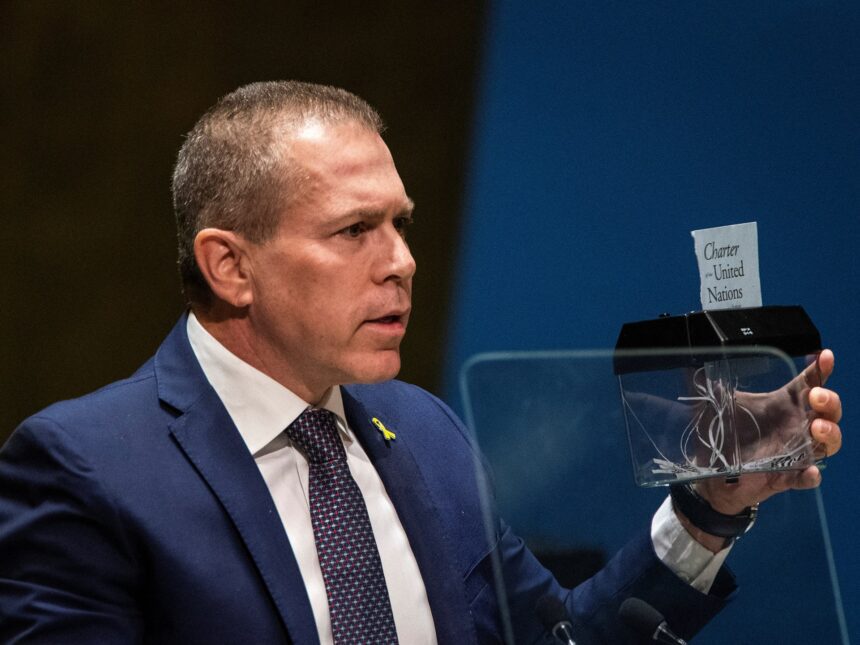The extraordinary immunity that Israel has experienced for many years has pushed international law and its institutions to a critical point. Israel has caused the death of UN workers, prohibited UNRWA, denied entry to UN representatives, and repeatedly disrespected the UN and its officials.
Various Israeli governments and their allies have made every effort to pressure the International Criminal Court (ICC) not to investigate Israeli crimes – from direct threats of physical harm to sanctions and slander. The attacks on the court have escalated after arrest warrants were issued for Prime Minister Benjamin Netanyahu and former Defence Minister Yoav Gallant.
US President Donald Trump, a strong supporter of Israel, has signed an executive order reapplying sanctions on ICC staff members. This comes on top of other decisions he has made – like withdrawing the US from the Paris Climate Agreement and the World Health Organization – that clearly challenge international multilateralism. On Tuesday, the US president openly displayed his complete disregard for international law by announcing his intention to “take over” Gaza and “own it.”
All of these events raise doubts about whether the current global system led by the UN is beyond repair.
Despite being established in 1945 to “save succeeding generations from the scourge of war,” the UN has largely failed to prevent and stop conflicts for many years. Its creation ushered in an era of “peace for some” – peace for economically advanced states that engage in proxy wars in previously colonized states. Thus, should we abandon the idea of an international legal order altogether?
In the face of the imminent threat of climate change and the rapid increase of militarization, it is evident that we require a system that unites people under the principle of justice. Various thinkers have already proposed an international legal order that does not favor the powerful.
For instance, the distinguished Chilean legal scholar Alejandro Alvarez suggested a “new international law” around 70 years ago. During his tenure as a judge at the International Court of Justice, he argued that the European legal tradition, which served as the basis for much of international law, was inadequate to address legal issues in regions like the Americas.
In a series of dissenting opinions in cases he deliberated on, Alvarez called for a “new international law” that took into account the specific historical moment of decolonization worldwide and reflected the interests and positions of decolonized states.
There was a clear effort at that time by states from the Global South to use international law to their advantage. However, economically advanced states exerted their influence to thwart such efforts.
We are now at a critical moment where these endeavors must be revived if the concept of an international legal order is to survive. Action on Palestine can serve as the catalyst, as the genocide in Gaza represents larger patterns of domination and exploitation that characterize the current global system.
Efforts are already underway by states from the Global South to exclude Israel from the United Nations. A petition signed by 500 legal scholars has also urged the UN General Assembly to remove Israel to safeguard its legitimacy.
In response, the US Congress sent a letter to UN Secretary Antonio Guterres threatening to cut US funding if such a vote were to proceed. While the influence of the US lobby at the UN is well known, publicly threatening to withdraw funds from the UN if it carries out its regular functions is a form of economic coercion that undermines the authority of the institution and the principles of international law.
If the US decides to cease funding to the entire UN, then there is a clear solution – relocate the UN outside of the US and Europe to a location in the Global South. Moving the UN Headquarters from New York would significantly reduce costs, garner more support from the Global South, and allow for greater participation. It would eliminate the dilemma of an international legal institution based in a country that has consistently been a perpetrator of the crimes that the institution was founded to prevent.
History unmistakably shows the need to dismantle institutional structures that uphold imperial power, such as the UN Security Council, the International Monetary Fund, and the World Bank. Calls for the abolition of these institutions were led by significant figures of the decolonization movement like Thomas Sankara and Amilcar Cabral. The UN General Assembly and the International Court of Justice, as platforms for voices from the Global South, must be granted more authority – a point that was emphasized by Algerian Judge Mohammad Bedjaoui. Additionally, this can be a moment of rapid international law-making that builds on past efforts to establish a new international legal order. Pacific islands are already challenging the constraints of international law by requesting the ICJ to rule on state responsibility regarding climate change.
Progressive International, a coalition of progressive organizations from across the globe, has recently aimed to revive certain previous initiatives by launching a project to develop a framework for a new international economic order. There is strength in unity of voices, and people from the Global South are united in their experience of economic and physical oppression. For such transformation to occur, the political currents must align – even if only momentarily.
The current period of genocide, neocolonialism, climate crisis, and disturbing impunity compels us to rethink the current state of affairs. Cynicism is a luxury we cannot afford. We must commence laying the groundwork for a new international legal system that values justice over power.










